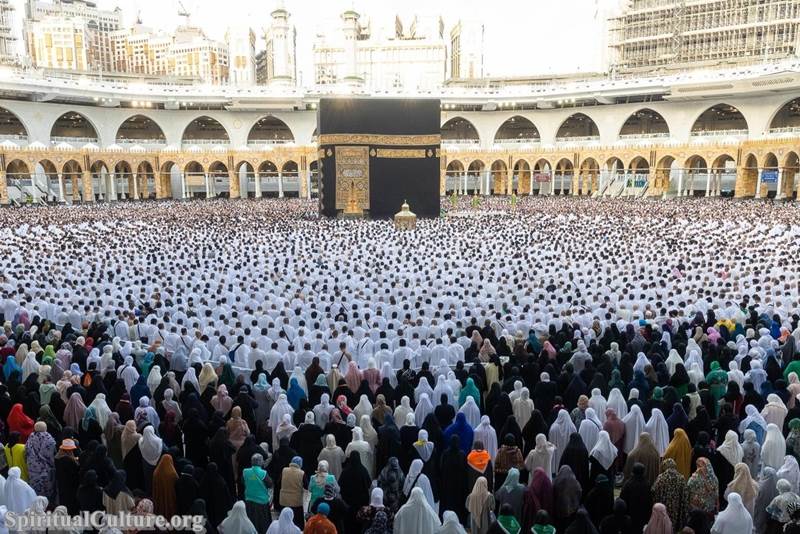The modern world faces a growing environmental crisis, but long before carbon footprints and climate change became daily conversations, the Quran and Hadith already spoke of the sacredness of creation and the duty of humankind to care for it. Islam offers a powerful vision of environmental stewardship rooted not in political trends but in spiritual truths.
As Spiritual Culture, we invite you to explore the deep ecological wisdom found in Islam. This article unveils how the Quran, the life of the Prophet Muhammad (peace be upon him), and classical Islamic scholarship all point to a sacred relationship between the human soul and the natural world — a relationship of trust, balance, and reverence.
We will examine how Islamic teachings call humanity not to dominate the Earth, but to live as responsible stewards (khalifah) of it. From water conservation to tree planting, from ethical consumption to protecting biodiversity, these teachings reveal that caring for the Earth is not optional — it is an act of worship, an expression of taqwa (God-consciousness), and a reflection of divine trust.
The Earth as a Sacred Trust (Amanah)
The World Is Not Ours to Own
In Islam, the Earth is not merely a resource — it is a trust from Allah (amanah) to humanity. The Quran repeatedly reminds us that all creation belongs to God:
“To Allah belongs whatever is in the heavens and whatever is on the Earth.”
(Quran 2:284)
This divine ownership means we are not free to exploit the Earth as we please. We are caretakers — khalifah — appointed by God:
“It is He who has made you successors upon the Earth…”
(Quran 35:39)
A successor (or steward) is one who acts on behalf of the Owner, preserving and protecting what has been entrusted. This is not a passive role — it is a deeply moral and spiritual calling.
Prophetic Example: Mercy to All Creation
The Prophet Muhammad (peace be upon him) was known for his gentle relationship with nature. He once said:
“The world is sweet and green, and verily Allah has installed you as stewards in it, so He sees how you act.”
(Sahih Muslim 2742)
The “sweet and green” world is not a playground for indulgence but a test of our character and consciousness. Every tree planted, every drop saved, every creature treated with mercy is part of this test.
Balance (Mizan) in the Natural Order
A Universe of Precision and Harmony
The Quran speaks often of mizan — the divine balance embedded in the universe. This concept teaches that nature is not chaotic or purposeless but meticulously measured:
“And the sky He raised, and set the balance (mizan). That you not transgress within the balance.”
(Quran 55:7–8)
Disrupting this balance — through greed, waste, or pollution — is a spiritual offense, not just an environmental one.
Sustainability in Islamic Law
Islamic jurisprudence (fiqh) promotes the concept of maslahah — public benefit and prevention of harm. Environmental protection is therefore not a modern addition but an integral part of Islamic ethics.
Classical scholars permitted limiting personal freedoms when those freedoms caused environmental harm to others, underscoring a duty to act not just as individuals but as a society.
Water: A Symbol of Mercy and Moderation
Water as a Divine Gift
Water holds a central place in Islam — spiritually, ritually, and ecologically. It is called the origin of all life:
“And We made from water every living thing.”
(Quran 21:30)
Yet despite its abundance in ritual practice (ablution, purification), the Prophet Muhammad always modeled moderation. He once performed ablution using just a mudd — a small container — even when near a river.
“Do not waste water, even if you are at a flowing river.”
(Ibn Majah, Book of Purification)
This ethos of non-wastefulness — even in abundance — reflects Islam’s deep awareness of resource limits.
Water Rights in Islamic Civilization
Historically, Islamic societies developed complex legal systems for water rights, ensuring equitable access, especially for farmers, the poor, and animals. This reflects a vision of water as not just a commodity but a shared trust.
Trees, Animals, and Biodiversity
Planting as a Form of Charity
Islamic tradition encourages planting trees not only for agriculture but as an act of ongoing charity (sadaqah jariyah):
“If a Muslim plants a tree or sows seeds, and then a bird, or a person, or an animal eats from it, it is regarded as a charitable gift.”
(Bukhari)
This hadith is a profound ecological ethic — every living being that benefits from your tree multiplies your reward.
Animal Welfare and Ethical Treatment
The Prophet Muhammad showed deep compassion toward animals. He forbade overburdening them, harming them, or taking their young without reason. One hadith even recounts a woman entering Hell for starving a cat, and another of a man entering Paradise for giving water to a thirsty dog.
This spiritual view of animals honors their dignity as creations of God — not objects but signs (ayat) of the Creator.
“There is not an animal on Earth, nor a bird flying on its wings, but they are communities like you…”
(Quran 6:38)
Waste, Greed, and Consumerism
The Sin of Israf (Wastefulness)
Islam warns against israf — extravagance and waste — as a moral failing. This applies to food, energy, time, and even spiritual attention:
“Indeed, the wasteful are brothers of the devils, and ever has Satan been to his Lord ungrateful.”
(Quran 17:27)
In a world dominated by consumer culture, Islam challenges us to ask: Do we take more than we need? Do we buy what we won’t use? Do we treat the Earth as disposable?
Ethical Consumption and Contentment
The Prophet lived simply, wore modest clothes, and consumed mindfully. He taught that wealth is not the abundance of possessions but the richness of the soul:
“Richness is not having many possessions, but richness is being content with oneself.”
(Bukhari and Muslim)
This inner contentment (qana’ah) is a key to ecological balance. When we are content, we consume less — and when we consume less, the Earth breathes more freely.
Community, Policy, and Global Responsibility
Collective Action and Environmental Justice
While individual acts matter, Islamic teachings also call for systemic justice. The Quran repeatedly commands us to “stand firmly for justice,” which includes speaking for those harmed by environmental degradation — often the poor and voiceless.
Eco-justice in Islam is not about abstract ideals — it’s about real lives: communities devastated by floods, droughts, pollution, and climate change.
“Corruption has appeared on land and sea because of what the hands of people have earned…”
(Quran 30:41)
This verse is a timeless warning — what we do to the Earth, we do to ourselves.
Revival Through Faith and Action
Many contemporary Islamic environmental movements, such as the Islamic Foundation for Ecology and Environmental Sciences (IFEES), draw upon these deep roots to promote conservation, green mosques, and climate justice.
Their efforts echo the Quran’s call:
“And do good as Allah has done good to you, and do not seek corruption in the land.”
(Quran 28:77)
Reflect and Reimagine
Islamic teachings on environmental stewardship are not optional extras — they are central to the faith’s vision of a just and God-conscious life. The Earth is not a backdrop to our spiritual journey — it is a part of that journey. Each leaf, stream, and bird calls us to remember the Creator.
As Spiritual Culture, we invite you to see environmental care not as a burden but as a form of remembrance (dhikr), a quiet worship, a sacred trust.
What would change in your life if you saw the Earth as a Qur’anic text — living, breathing, and speaking of God?
May we learn to walk gently, consume mindfully, and live humbly — as stewards of the garden we did not create, but are blessed to tend.
“Whoever revives a barren land, it is his reward.”
— Hadith, Sunan al-Tirmidhi
Let us be revivers. Let us be gardeners of hope.


